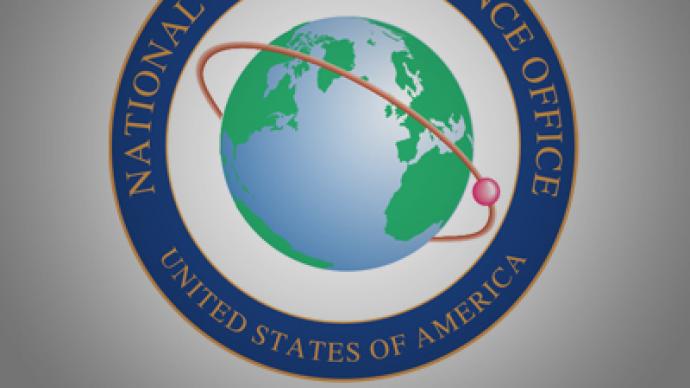National Reconnaissance Office accused of illegally spying on Americans

Not much is publically known about the US National Reconnaissance Office, and maybe that’s a good thing. Former agents with America’s top-secret spy group say they’ve been ordered to ignore ethics when it comes to their government-appointed jobs.
Subjecting job applicants to polygraph screenings isn’t something out of the ordinary when it comes to positions with any government agency, including the NRO. Former staffers with the office insist that their ex-bosses more or less demanded that potential employees be forced to undergo rigorous questioning, however, that goes far beyond what is ethically and legally allowed.Investigators with McClatchy News have uncovered hundreds of internal documents and memos that make it clear that the screening of job applicants and employees that the NRO expects from its staffers erodes good ethics. Employees are encouraged to get deep, dark confessions out of their subjects during screenings, and even rewarding those with the best results and condemning those not up to snuff. So demanding are these delegations, though, that former workers are worried that the government isn’t doing its job of catching spies but is instead more concerned with causing personal and emotional harm without actually helping the country.In at least two instances, the NRO interrogated applicants to a point that they revealed to molesting young children. McClatchy’s investigation concludes that applicable law enforcement agencies were never made aware of these confessions.“You’ve got to wonder what the point of all of this is if we’re not even going after child molesters,” Mark Phillips, a veteran polygraph expert, tells McClatchy. Phillips spent years with the agency before recent resigning, a move he says he was driven to after the office retaliated at him for refusing to comply with their demands.“This is bureaucracy run amok. These practices violate the rights of Americans, and it’s not even for a good reason,” Phillips says.Another former employee, Chuck Hinshaw, adds to the outlet that higher-ups at the NRO once made him subject a potential new hire to hours of intense scrutiny that ended with an adult woman breaking down and revealing a long-hidden secret. Intense drilling eventually ended with one applicant admitting that she was molested as a teenager. “Go back in there and get details,” Hinshaw says his bosses demanded. “You don’t understand,” he recalls telling them. “This woman needs help.” Hinshaw refused to comply with their demands. Later on, he had his security clearance revoked because he did not immediately tell his employers that he was foreclosing on his home. The NRO cited trust concerns as their reason for removing his credentials.Mark Phillips recalls that, after asking the agency’s attorney to investigate the office’s practices, he was also reprimanded.“Instead of spending time trying to improve his information collection skills, Mr. Phillips has spent an inordinate amount of time documenting, making complaints and arguing why he believes our program is collecting information in violation of (Pentagon) regulations,” the office wrote in an annual reviews Phillips provides McClatchy. “His accusations are without merit.”















